Interview with Daniel Blake Smith
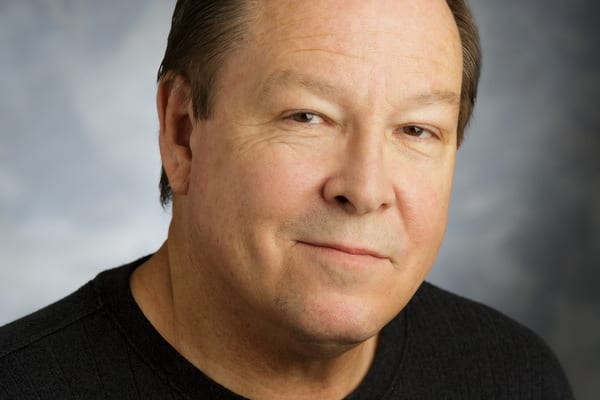
Daniel Blake Smith was raised in a small North Texas town, he grew up expecting to be a Major League Baseball player (As a pitcher, Daniel had a modest offer out of high school from the Cincinnati Reds) but instead he got enthralled with history in College and, amazingly, went on to get a Ph.D and become a History Professor at the University of Kentucky. There, he developed his storytelling abilities by writing books about real people and eventually turning them into even more dramatic characters on stage.
Daniel Blake Smith became a playwright. He loved the immediacy of the stage and working with actors, but he struggled with the relatively narrow audience base that could afford (and wanted to come) to see plays. So he began writing for Television and Film—at first documentaries, and narrative features—even as he has continued to write non-fiction books.
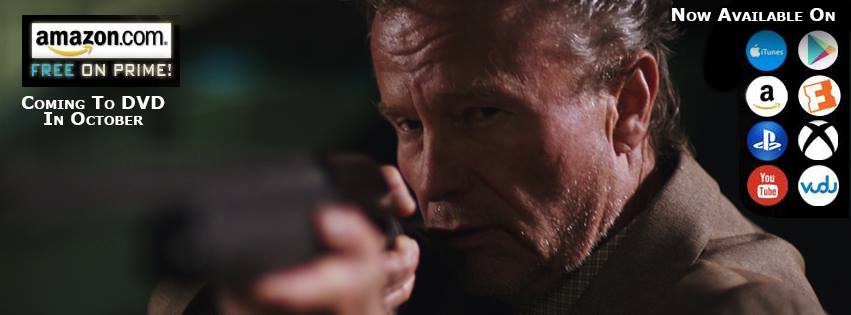
indieactivity: Why did you get into filmmaking and screenwriting?
Daniel: I got into screenwriting and filmmaking as an outgrowth of my efforts earlier on in my career as a playwright. While I was a professor of American history at the University of Kentucky, I began writing historical dramas for the stage. Later, I gravitated to film in order to broaden out to a larger audience – and make more visual—the stories I was telling. Initially, those stories were true ones told in a documentary format.
Films about native Americans—narrated by James Earl Jones—and a docudrama I wrote on Edgar Allan Poe (starring John Heard, Treat Williams and Rene Auberjenois, with music by composer Philip Glass) for the PBS series “American Masters” eventually morphed into a desire to write and produce fictional narrative features. That effort culminated in TEXAS HEART along with several other narrative feature projects in development now—THE KISS, a romantic drama; and BLOOD BORN, a thriller.
indieactivity: How does an indie filmmaker distribute his/her film?
Daniel: If you don’t have big stars in your film or top tier festival buzz (Sundance, SXSW, Telluride, Toronto), you’re probably looking at some form of self-distribution or a distributor (like Indie Rights or Distribber) that focuses on digital platforms—Amazon, iTunes, Fandango, etc. Self-distribution has the virtue of cutting out the middleman, leaving a much larger profit share for the filmmaker but it is TOUGH day labor that not every filmmaker is prepared for.
Whatever route you take, DO focus on social media: start enlarging and deepening your social media presence BEFORE you go into production, then keep and extend your audience with regular updates during production, so your audience is growing and increasingly ‘ready’ for the release of your film. It takes a very robust social media presence—generated by the filmmaker—to drive traffic to the various platforms, where sales and rentals lead to actual revenue.
indieactivity: When does an indie filmmaker need to start planning for distribution?
Daniel: You should be thinking about it when writing your script—that’s part of ‘don’t forget your audience’—so that you can imagine who you’re going to target for marketing the film once it’s made. If you have a really strong concept (and better yet if you have some significant names attached) before you go into production, you can sometimes get a distributor to get behind your film, thus adding more value to your film’s ‘package.’ And that will likely drive more investors to your project and, ultimately, more buzz to the film once it’s completed and ready for the festival circuit.
indieactivity: How do I get my film in theatres with an indie budget?
Daniel: It costs a lot of money for even a very modest theatrical release—at minimum $10K and $50K or more for the pr associated with a real theatrical screening effort, especially anything beyond a single city. If you don’t have that sort of funding available, there are piecemeal ways to crowdsource individual theatrical screenings—especially using Tugg and Gathr.
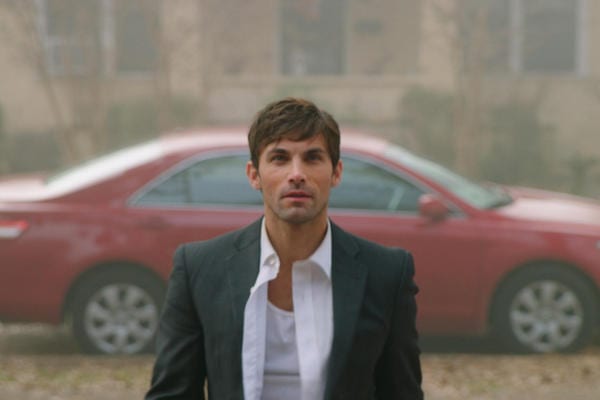
indieactivity: How can filmmakers finance their projects?
Daniel: As the great indie filmmaker John Sayles said in his book, THINKING IN PICTURES (which, btw, is one of the best books on indie filmmaking ever), if you know where to get financing for films, please give me a call asap. Trusted rich family and friends—the kind that WON’T be permanently offended if their investment in your movie doesn’t make money—are always worth a try, though the safest personal approach is always self-financing. That is, if you have the funds and your marriage can survive the rocky financial road ahead.
Beyond that, going after people who see a genuine thematic connection to the story you’re telling in the film, can sometimes generate potential investors. We didn’t try it with Texas Heart, but because there’s an important subtheme regarding autism, it might have proven useful to reach out to those in the autism community. This sort of thematic connection works much better with documentary films. Finally, if you can connect with managers (agents are, of course, much more elusive—they want to MAKE money off of you, not help you FIND money for your films), they often also produce movies and have contacts with financiers.
indieactivity: What films have you written?
Daniel: THE KISS, writer/producer (with Elizabeth Anne Martin) 2017; BLOOD BORN, writer/producer (2017) (click on ‘films in development; scroll down for the short on which the script is based); SKY HIGH: THE TRUE ADVENTURES OF ‘WILD BILL’ CALDWELL, writer/producer (2016); TEXAS HEART, writer/producer (2016); LIFE AFTER, co-writer (2014).
indieactivity: What are the films that you have made?
Daniel: TEXAS HEART, writer/producer 2016; IMPACT—AFTER THE CRASH, writer/producer (feature doc), 2015 (festival circuit and regional PBS); ENVISIONING HOME, writer/producer (feature doc) 2012 (festival circuit/regional PBS); KENTUCKY—AN AMERICAN STORY, writer/producer 2010 (feature doc narrated by Ashley Judd; regional PBS); TRAIL OF TEARS: CHEROKEE LEGACY, writer 2006 (narrated by James Earl Jones ABC); FEBRUARY ONE: THE STORY OF THE GREENSBORO FOUR, writer/producer 2005 (Independent Lens, Emmy nominated); BLACK INDIANS: AN AMERICAN STORY, writer 2001 (narrated by James Earl Jones; festival circuit); EDGAR ALLAN POE: TERROR OF THE SOUL, writer 1995 (docu-drama starring John Heard, Rene Auberjenois, and Treat Williams; music by Philip Glass; PBS AMERICAN MASTERS series)
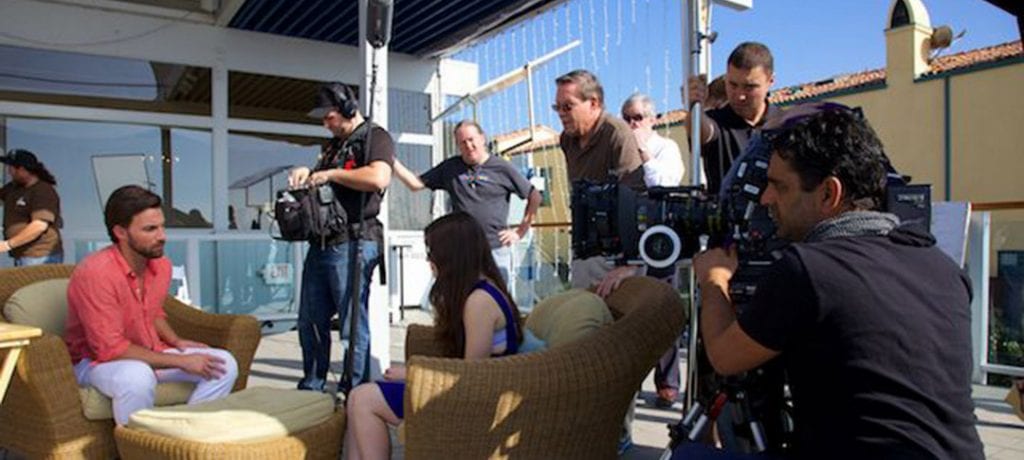
indieactivity: What is your concept on collaboration?
Daniel: I love collaborating with other writers, producers, directors, and actors. If you’ve brought the right team together with a shared interest in doing whatever is best for the film (not necessarily for their own career arc), you’re well on your way to a great experience and an excellent film. Collaborating, though, does not mean consensus on everything or going along to get along. It means cultivating an environment where creative minds can (and do) disagree on story, character, dialogue, direction, the ‘look’ of the scene, etc. Someone has to be the final arbiter (and that’s nearly always the director) but good creative friction on a set (which grows out of a spirit of genuine collaboration) usually leads to a very good film.
indieactivity: How do you find the process of filmmaking as an indie filmmaker?
Daniel: The process of making a film as a low budget indie is a tale of two cities. In one city there’s a spirit of ‘let’s make a movie together and make it the best it can be’—a love of cinema and telling stories on film. There’s also another city where every choice and decision is perceived through, and often controlled by, tough, painful financial limitations. I love living in the first city; I am a sad, reluctant inhabitant of the second one.
indieactivity: Describe your recent work, or film, from pre-production to Marketing?
Daniel: In TEXAS HEART, we struggled to pull together sufficient financing even to make the film and even then had to shoot it in Mississippi where we could take advantage of filmmaker-friendly tax incentives. But we had a good story and colorful characters so finding strong talent was not really hard—actors, even accomplished ones, want to act and they really spark to juicy roles. We flew most all of our leads down to Mississippi and, along with some highly skilled local actors, put together an ensemble that really came together.
It was a tough 3 week shoot where more than a few decisions were governed by money but we got it done on time and only slightly over budget. Alas, like many other indie productions, we cannibalized some of our post production funds simply to finish the shoot. But we successfully prevailed on some of our investors to make another contribution to help us fund post production and what little marketing we could afford. Marketing, unfortunately, got (mostly lost in the shuffle simply so we could send out a finished, polished film to the festival circuit.
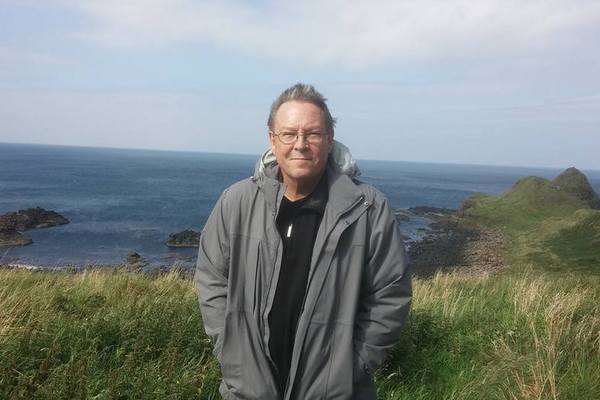
indieactivity: What are your future goals?
Daniel: I’m trying to keep telling stories on film with other projects (THE KISS and BLOOD BORN) high on my agenda. Finding financing, though, continues to be an issue. I’m also a book author and I’ve just finished a novel, MR. WONDERFUL, which, not surprisingly, can be made into a really interesting film. Hmmm.
indieactivity: Tell us about what you think indie filmmaker need in today’s world of filmmaking?
Daniel: You need a clear, passionate artist’s vision of what you want to do, based on stories you feel simply MUST be told, married to an equally important dispassionate BUSINESSPERSON’S vision. (They call it Show BUSINESS, for a reason). If you follow the vision of both of these elements, you’ll be successful.
indieactivity: Briefly write about your career?
Daniel: I began storytelling as a professional historian—getting a Ph.D. in American History at the University of Virginia, and then as a history professor at the University of Kentucky. Writing history books was my first effort at seeing the compelling nature of true stories. I learned I was good at this kind of story telling, but especially wanted to find the dramatic elements in those stories, so I gravitated to theatrical plays, and documentaries, and finally narrative feature films. You can check out my work—books and film, documentary and narrative—on my site: danielblakesmith.com
